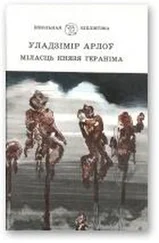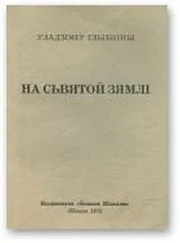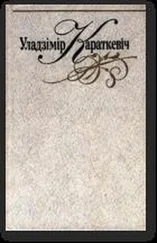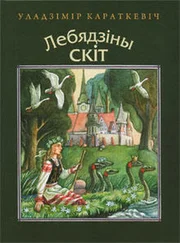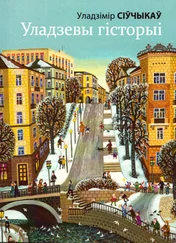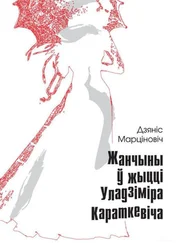Уладзімер Дудзіцкі
НАПЯРЭЙМЫ ЖАДАНЬНЯМ
Збор твораў
Беларускі Інстытут Навукі й Мастацтва, Нью-Ёрк - 1994
Укладальнік і рэдактар: Лявон Юрэвіч
Бібліяграфія й камэнтарый: Алена Юрэвіч
Вокладку апрацавала:Ірэна Рагалевіч-Дутко
«Прайшлі, прамінулі гады... Зарубцаваліся раны, але ня сплямілася перажытае. Душа беларуса жывучая, ня ўмее маўчаць ні ў часіны радасьці, ні смутку. Яна сьпявае й вядзе напярэймы жаданьням, а жаданьнямі гэтымі ёсьць шчырасьць і праўда жыцьця, ці гэта на Бацькаўшчыне, ці, як суджана ізноў злым лёсам, — на чужыне»
Уладзімер Дудзіцкі
«Збор твораў» Уладзімера Дудзіцкага выходзіць у сьвет упяршыню. Падрыхтаваныя пры жыцьці аўтара два зборнікі — «Песьні і думы» і «Напярэймы жаданьням» — загінулі. Нават невядома, якія вершы ўключыў паэт у кожны з названых зборнікаў.
Прапанаваная чытачу кніга аб’ядноўвае ўсе мастацкія друкаваныя і ненадрукаваныя творы Уладзімера Дудзіцкага, якія на сёньняшні дзень вядомыя рэдактару.
Творы Ул. Дудзіцкага падаюцца храналягічна, датуюцца паводле аўтарскай вэрсіі. Час напісаньня некаторых вершаў удакладняўся з улікам публікацыяў і кантэксту. Недатаваныя творы акрэсьліваліся ў часе толькі ў адпаведнасьці з кантэкстам.
Калі твор мае некалькі рукапісных варыянтаў, друкуецца той, у якім ёсьць зробленыя аўтарам зьмены і выпраўленьні, або, на думку рэдактара, больш дасканалыя. Калі твор мае рукапісны і друкаваны варыянт, перавага аддаецца публікацыі.
Усе рукапісныя творы Ўладзімера Дудзіцкага захоўваюцца ў архіве Беларускага Інстытуту Навукі й Мастацтва (БІНіМ, Нью-Ёрк) і выкарыстаныя пры падрыхтоўцы выданьня вычарпальна.
Рэдактар шчыра дзякуе спадарам Зоры і Вітаўту Кіпелям, якім належыць ідэя стварэньня «Збору твораў» Уладзімера Дудзіцкага, за неацэнную дапамогу на ўсіх этапах падрыхтоўкі, рэдагаваньня і друкаваньня гэтай кнігі.
Слова глыбокай удзячнасьці спадару Яну Запрудніку за ўважлівае рэцэнзаваньне рукапісу і каштоўныя парады пры падрыхтоўцы кнігі да выданьня.
Рэдактар удзячны спадару Эдварду Касінцу за добразычлівыя адносіны і садзеяньне ў выяўленьні публікацыяў Дудзіцкага, зьмешчаных у рэдкіх і маладаступных пэрыядычных выданьнях, захаваных у зборах беларускай калекцыі Славянскага аддзелу Нью-Ёркскай Публічнай Бібліятэкі.
Вялікі дзякуй тым, хто адгукнуўся на заклік дырэктара Беларускага Інстытуту Навукі й Мастацтва спадара Вітаўта Кіпеля і падтрымаў выданьне кнігі матэрыяльна, а таксама ўсім, хто спрычыніўся да вяртаньня ў беларускую літаратуру Ўладзімера Дудзіцкага.
Нью-Ёрк, 1994 г.
My last memory of Papa is painful to recall as all earlier ones prior to age 16, when, last I saw him. He was on his way to Caracas, Venezuela from Syracuse, New York and I was returning back to high school studies after Easter break, from Syracuse to Bloomington, Indiana. The year was 1968. It all seems another life and such a long time ago.
Life with Papa was never dull, sometimes filled with laughter as his humor was excellent; but mostly difficult because of ghosts which seemed to haunt him. The earliest memories of him include walks along country lanes near our home in Munich, Germany. I would have been aged five to six then. He would recite poetry. Often times his recitation of poetry surely had to do with private anguish or longing, which, as a child, I could not possibly have understood. Nevertheless, I sensed that it was important to him to walk and talk aloud. Perhaps it was a small comfort to him to have had one of his children by his side. I hope it was.
There were christenings and birthday parties attended by the priest, elegantly dressed parents and cleanly scrubbed children — lively gatherings splendidly decorated with exotic foods and lots of drinks. Always the conversations amongst the adults returned to the horrors of World War 2, no matter how jovial our gatherings at home might have been. Adults chasing ghosts while children chased one another, oblivious to all the sorrow in our parents' world.
Early on, all the children under Papa's roof, Sergei, Lidia, Olga, Vova, Masha and I understood that his disposition was a troubled one. We did not understand why or know what to do to assist. We were children who were growing up with a man who had forgotten how to be a child. Perhaps there was a reason why he chose to forget those very early years of his own life.
It was not until we all grew older that we learned of Papa's professional accomplishments, his love of homeland and private anguish to do with all that happened to him prior to and during World War 2. I do not believe that even today we know the full account of his earlier life.
How could we have known then that he was a man besotted by a complex personal history, which, was intertwined with political events of his homeland? Our mother knew and spared us his torment in hopes that we could simply be children, enjoying the magic of childhood.
He lived his life in exile, which, meant that no matter where else he lived after leaving Belarus, whether Europe, South America or United States, he was a man without his country and never truly at home elsewhere. A man divided between love of family and love of homeland. In the end he chose homeland and so in 1968 began his journey home. I hope he found what he was looking for when he returned. I fear that he did not.
Speaking on behalf of his children, I can say that we are happy for him that his poetry is now to be shared with his countrymen and that the ideals he sought of freedom and nationalism have finally been realized in Belarus. He played a part in that struggle for independence and for that he deserves a moment of recognition. We only wish he could have been part of the later years of his children and now grandchildren. I am certain that his poetry today would include the joy of family — because in the end it is our relationship to one another and to God that truly matters.
Читать дальше
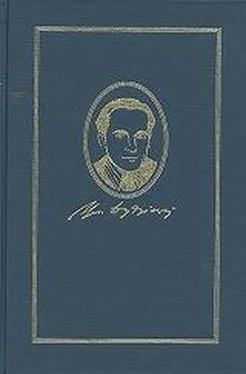


![Уладзімер Глыбінны - Вялікія дарогі [пра мінулае]](/books/81904/uladzІmer-glybІnny-vyalІkІya-darogІ-pra-mІnulae-thumb.webp)
